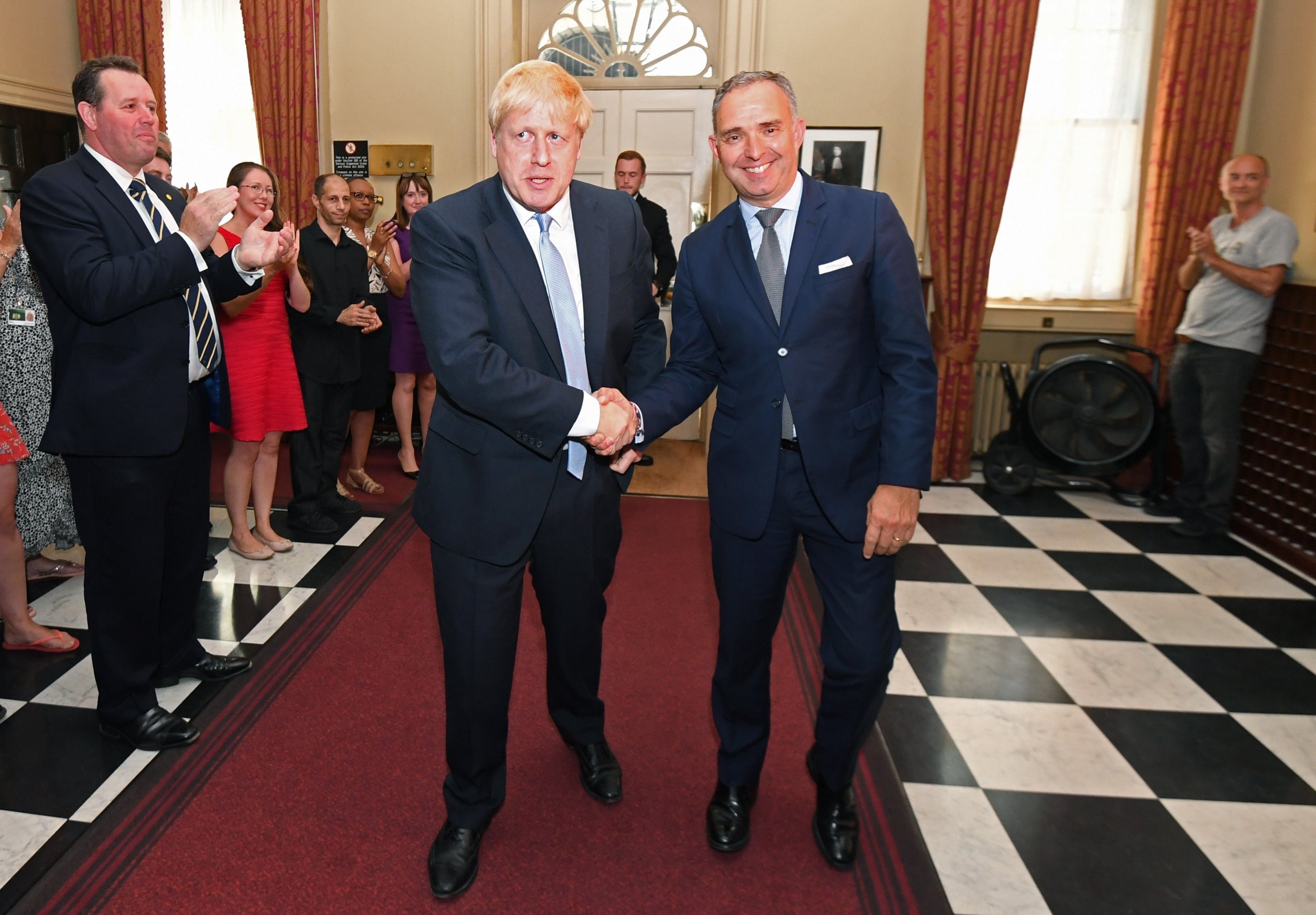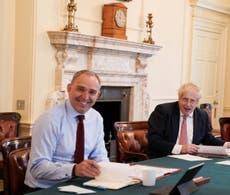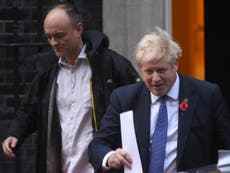Mark Sedwill was a roadblock to Dominic Cummings's vision for the civil service – so he had to go
The cabinet secretary was subject to hostile briefings that made clear he wasn’t welcome. But any team manager knows that you can’t keep telling your players they are all useless


When Boris Johnson was being treated in hospital for coronavirus, Mark Sedwill, the cabinet secretary, played an important role in holding things together at the heart of government. He told ministers, bluntly, that they could not afford the luxury of petty squabbles while the team captain was off the pitch.
Sedwill received little thanks. By then, it was already clear Johnson and his allies had lost confidence in a man who also had two other jobs, as head of the civil service and the prime minister’s national security adviser. Crucially, they judged that Sedwill was like Macavity the Mystery Cat when the Covid-19 crisis erupted. The Cabinet Office is said by ministers to have under-performed in the pandemic, and in need of serious reform.
Characteristically for this government, Sedwill was the subject of anonymous briefings that made clear his time at the top was running out. The First Division Association, representing senior officials, accused Downing Street of undermining Sedwill by using “self-defeating, corrosive and cowardly” tactics.
His crime was to be seen as a roadblock to Dominic Cummings’s post-Brexit mission – to shake up the civil service. The end for Sedwill came quickly, unusually in a hurried Sunday evening statement designed to minimise media coverage, and to be soon eclipsed by Johnson’s efforts to kickstart the economy.
In a handwritten note, Johnson showered praise on Sedwill, ironically including his work on “the modernisation of the civil service”. Clearly, he had not modernised it enough. Sedwill jumped before he was pushed. He said in his resignation letter that he and Johnson had agreed the PM would need a separate national security adviser and cabinet secretary for the next phase of his administration.
There is already speculation that Johnson might look outside Whitehall for Sedwill’s successor, possibly bringing in someone with a track record in the private sector as a signal that “hard rain” is coming for the civil service, as Cummings put it last week.
This will raise genuine fears of politicisation, and of Johnson surrounding himself with “Yes” men and women. Significantly, the national security post has been handed to David Frost, Johnson’s Europe adviser and EU trade deal negotiator. He is, and will remain, a special adviser, a political appointment rather than a civil servant (although he used to be one as a diplomat). It is a break with tradition for someone with a party political label to brief the PM and cabinet on national security strategy, policy and capability and civil contingencies.
While the new cabinet secretary will focus on the domestic agenda, Frost will in effect become “Mr Global Britain”, championing the UK’s role on the world stage when the EU transitional period ends on 31 December. A very different animal to Sedwill’s securocrat.
There will also be fears that the Whitehall reforms are designed to concentrate power in No 10. Johnson and Cummings deny the charge, insisting that is about ensuring more effective, efficient departments with a small centre. They want ministers to change too, as Michael Gove, the Cabinet Office minister, made clear in a 7,500-word lecture at Ditchley Park on Saturday. “Reforming how government works requires ministers who can reform themselves,” he said.
Gove, like his former aide Cummings, wants a data-driven approach, noting that only 8 per cent of the government’s 108 major programmes are assessed to see if they get the desired results. In a candid self-appraisal, Gove rightly admitted that “we politicians are principally to blame. We go for the sugar rush that comes from announcing radical initiatives, unveiling dramatic overhauls, launching new spending programmes, ramping up this and rolling out that”.
The problem is that the confrontational approach to Whitehall reform, epitomised by the way Sedwill was shown the door, has its limits. Any team manager knows that you don’t always get the best out of your players by telling them they are all useless.
At some point, Johnson and Cummings will need to take the civil service with them, if they are going to get the best out of it.





Join our commenting forum
Join thought-provoking conversations, follow other Independent readers and see their replies